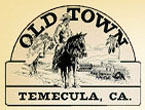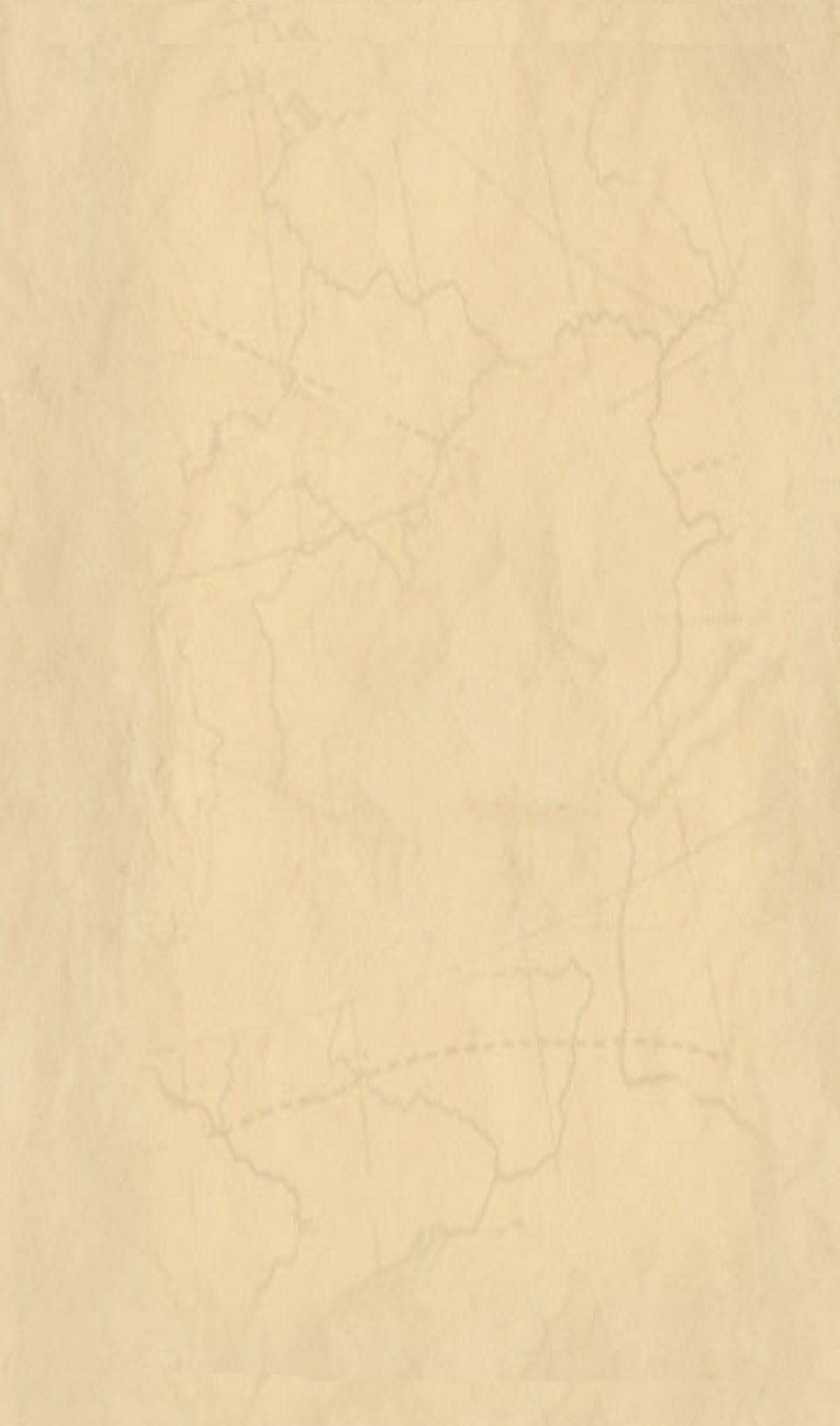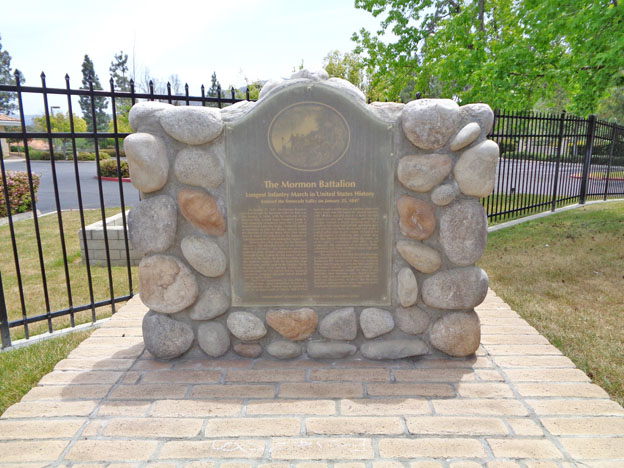| |

Local
Historic Property Inventory |
'Working
to preserve the rich heritage of the Temecula Valley' |




Click
on logo at left for an on-line map |
The
Mormon Battalion |
Inventory
Number: 42 |
HISTORIC
NAME(S): The Mormon Battalion PLAQUE DESIGNATION: n/a PLAQUE SIZE: PLAQUE LOCATION: Outside of the fence around the church PLAQUE GPS COORDINATES: 33.477550, -117.136080 or N 33° 28' 39.18", W 117° 8' 9.88" PLAQUE CONDITION: Fair to good LOCATION ADDRESS: 44650 La Paz Road - Temecula CA 92592 DESCRIPTION: Granite monument CURRENT OCCUPANT OR NAME: The Church of Jesus Christ of Latter-day Saints CURRENT OWNER: PLAQUE TEXT: |
The Mormon Battalion Longest Infantry march in United States History. Entered the Temecula Valley on January 25, 1847. |
On January 25, 1847 The Mormon Battalion marched through the Temecula Valley on their way into history. In 1846, with the outbreak of the Mexican War, United Statas President James K. Polk requested volunteers from The Church of Jesus Christ of Latter-day Saints, commonly known as Mormons, to enlist for military service. Under the direction of Colonel James Allen, their orders were to march to California for the purpose of, "taking possession of, and holding the country." Entering this valley shortly after the Temecula Massacre, "the bloodiest battle of the Mexican War in California." the Battalion provided protection while 38 slain Luiseno were buried near Temecula Creek. Cutting the first wagon trail from Santa Fe to the Pacific, the Battalion's efforts forged the Southern Emigrant Trail, the Butterfield Stage Coach route, and the route for the Southern Pacific Railroad. This road opened California to colonization by the United Statas, bringing commerce, emigrants and gold seekers along the trail during the 1850's. Their final commander, Lt. Col. Philip St. George Cooke, upon completion of their over 2000 mile trek said, "History may be searched in vain for an equal march of infantry. Half of it has |
been through a wilderness... in trackless table-lands where water was not found for several marches. With crowbar and pick and ax in hand, we have worked our way over mountain,... and hewed a passage through a chasm of living rock. Thus marching half naked and half fed, and living upon wild animals, we have discovered and made a road of great value to our country. Arrived at the first settlement of California after a single days rest, you cheerfully turned off from the route..., to enter upon a campaign, and meet, as we supposed, the approach of an enemy. Thus, volunteers, you have exhibited some high and essential qualities of veterans." The arrival of the Battalion brought advantages to General Stephen Kearny'a forces in Los Angeles, hastening the surrender of Mexican General Flores, thus bringing an end to the Mexican War in California. Indeed, it was while camped in Temecula, a messenger brought the news of said surrender. Upon discharge, many "battalion boys" went north and were present at Sutter's Mill when gold ws discovered. In short, the Mormon Battalion participated in every important event shaping the modern state of California. |
Monument
donated by members of the Murrieta Stake |

